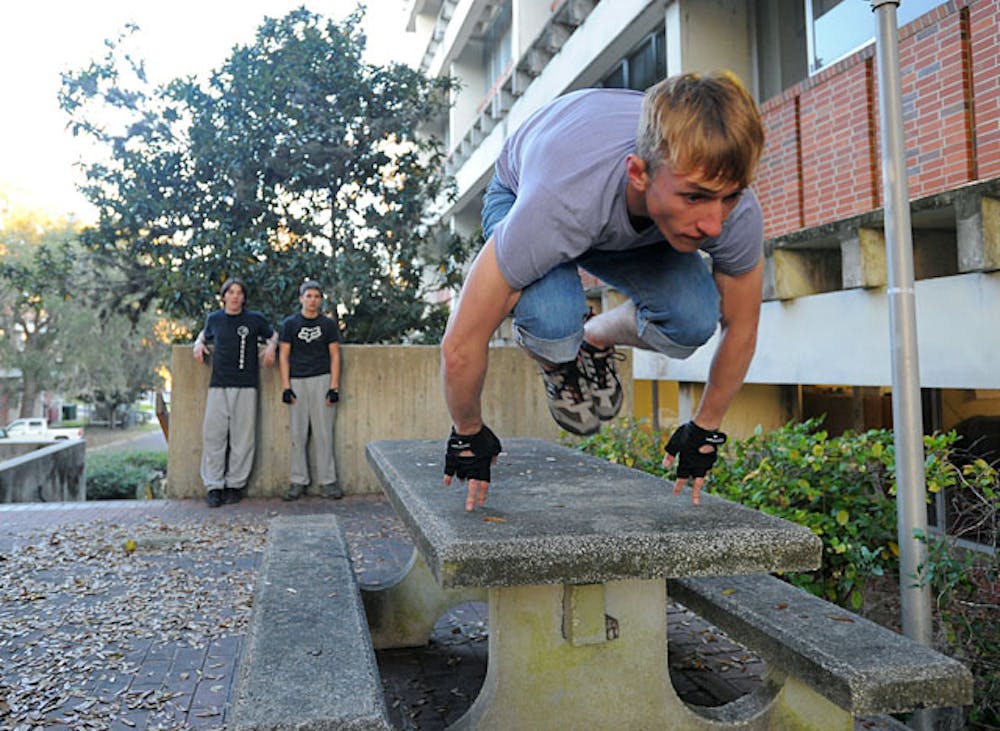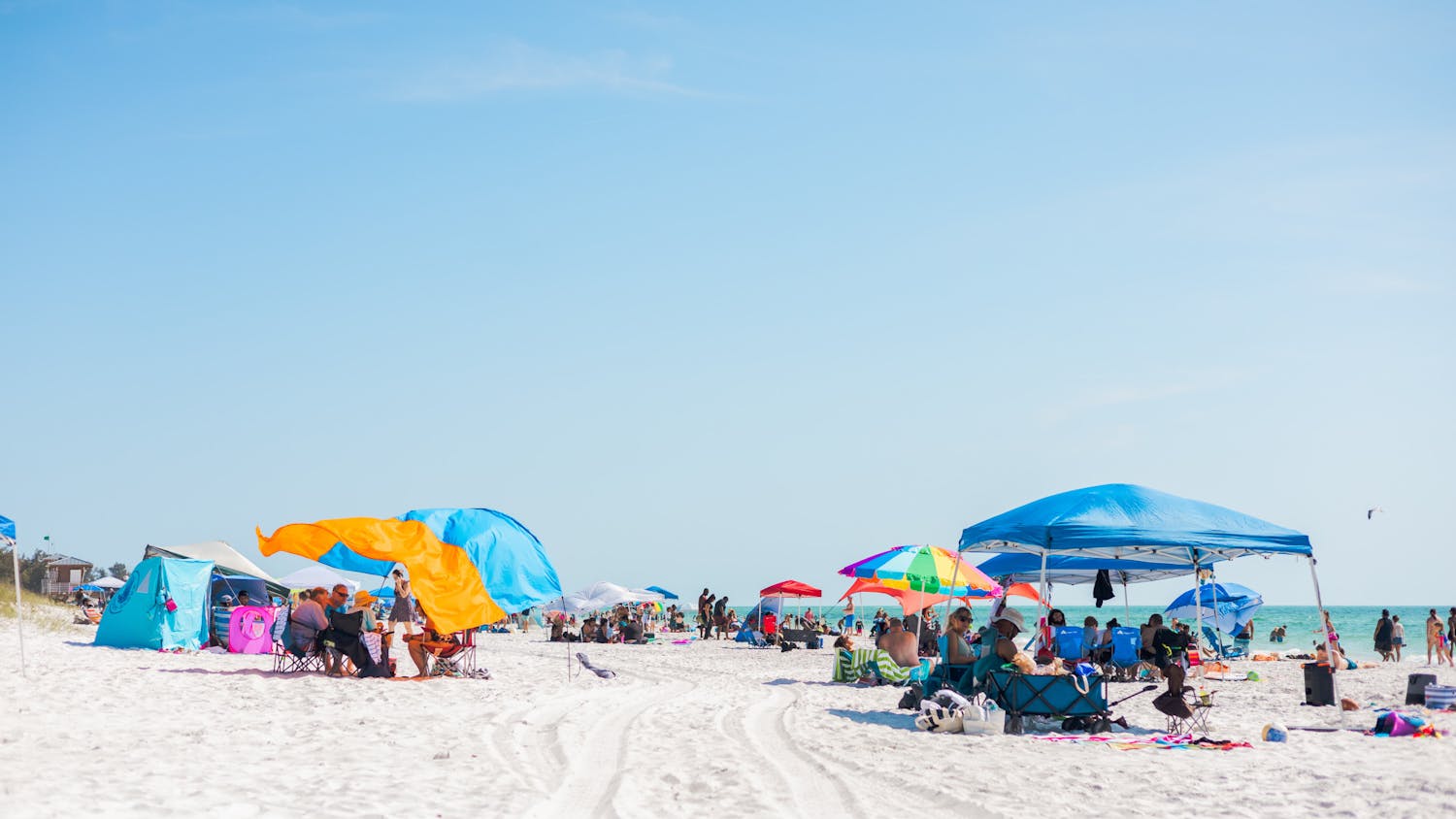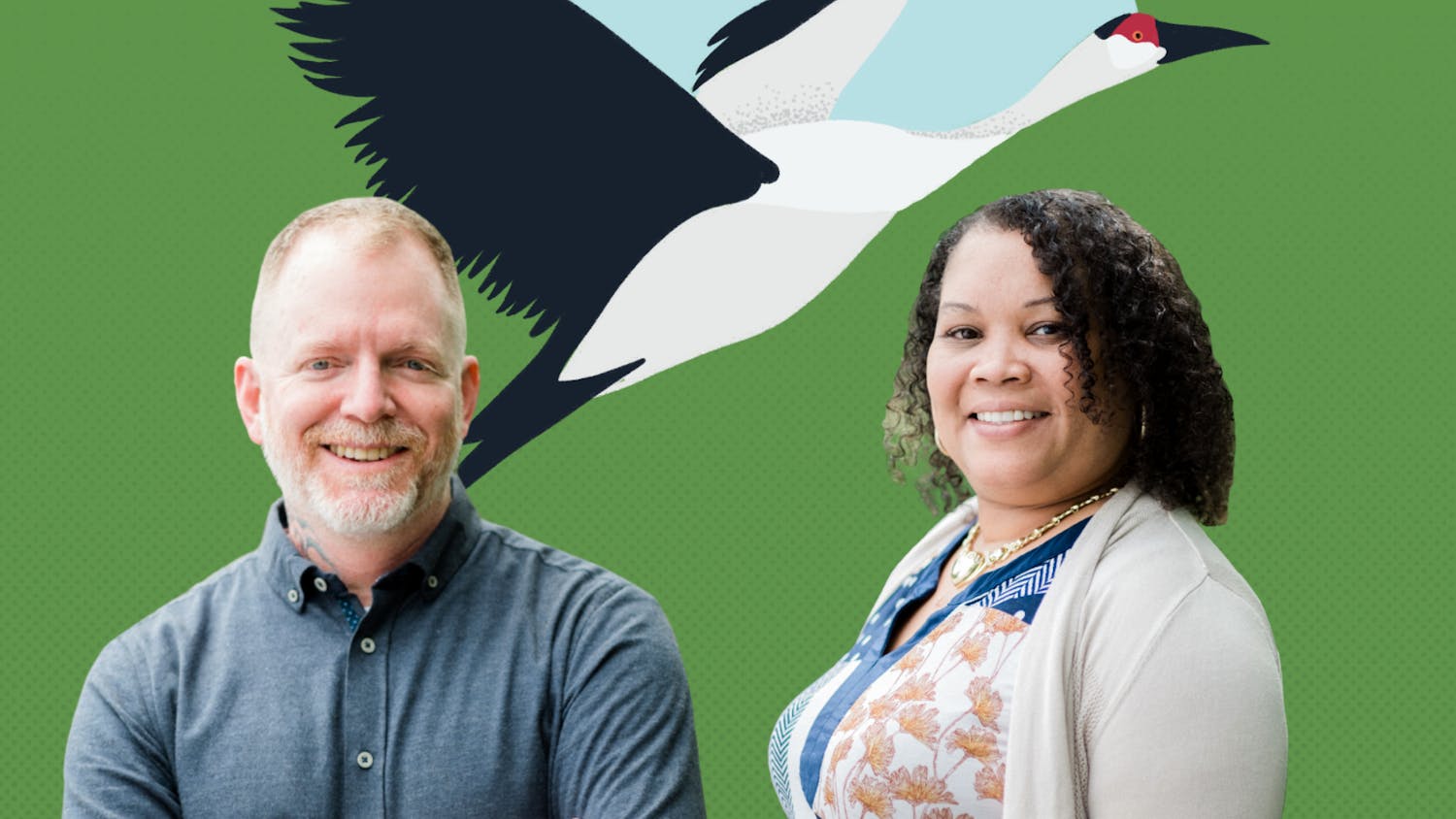Students involved with American Parkour have started spring cleaning early by incorporating the Leave No Trace campaign into their training regimen.
The campaign instructs practitioners of parkour, an athletic discipline in which people get from one place to another as quickly as possible, overcoming any obstacles in the way, to pick up litter while they travel through the public areas in which they train. The program was started to convey a positive image of parkour.
Parkour practitioners use their environment to travel in a fluid, fast motion. Those who practice parkour can be seen leaping off of ledges, scaling walls and swinging off of banisters in public places.
Parkour is viewed as destructive by some outside spectators. Mike Alvarez, a UF student and parkour practitioner, faces misconceptions about parkour's nature frequently.
“We are here to play, have fun and stay in shape,” Alvarez said. “We are using the environment given to us by architects. It isn't about vandalizing things.”
Alvarez suggested using Leave No Trace after seeing it online. He added it to the UF parkour training regimen in hopes that it would change people's negative perspectives.
“I saw the article about Leaving No Trace, and I started thinking. Why does it have to be one day?” Alvarez said. “Why don't we just carry trash bags with us, and while we are training, pick up trash every day?”
The benefits of Leave No Trace go beyond the practitioners of parkour. Stephanie Sims, the program assistant from the UF Office of Sustainability, believes it benefits the animals in UF conservation areas.
“Litter poses the most threat to animals in conservation areas,” Sims said. “If they ingest the litter and it gets in their system, it can be really harmful to the wildlife.”
UF parkour practitioners train weekly on Wednesdays from 3 p.m. to 7 p.m. and Saturdays from noon to 6 p.m. Between 10 to 15 parkour practitioners meet on Turlington Plaza weekly.
Alvarez and his friends are working together to develop a parkour club for UF by fall 2010.
Alvarez hopes that their actions encourage students.
“We want to inspire groups to go and work and leave a place better than they found it,” Alvarez said.





![The cleanup will be from 9 a.m. to noon and will start at Massey Park. [Graphic by Aubrey Bocalan]](https://snworksceo.imgix.net/ufa/c6a5b630-aad6-4a83-868c-905e4adcd33c.sized-1000x1000.jpeg?w=1500&ar=16%3A9&fit=crop&crop=faces&facepad=3&auto=format)
